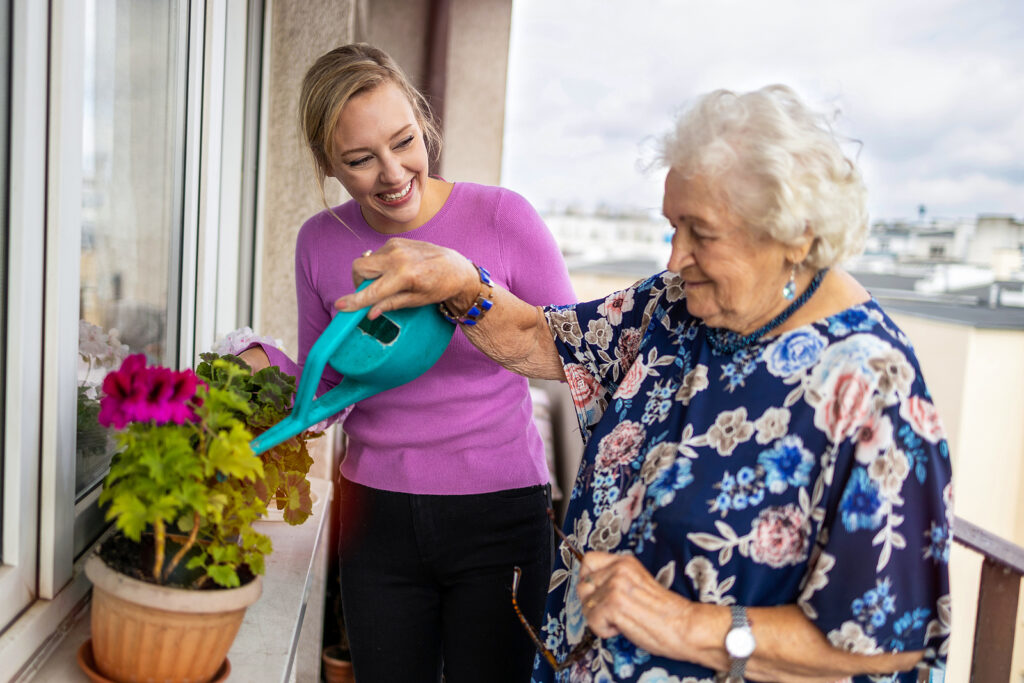Four Tips for Helping a Senior with Aphasia
Aphasia is a communication disorder that can result from damage to the brain, like from a stroke, or due to cognitive changes. Your elderly family member may experience partial aphasia, where it’s difficult for her to come up with one or more words, or more complicated aphasia. This usually results in your senior having extreme difficulty expressing her thoughts and feelings at all. Here’s how you can help.
Keep Everything as Simple as Possible
Because aphasia can be so frustrating, your elderly family member may simply opt to stop communicating. But that only allows frustration to build even more. One way you can help is to make communication with your senior as simple and as straightforward as possible. Asking questions that have choices is still possible, especially if you use gestures and other ways to allow her to express her opinions and feelings to answer. Home care providers can help your senior maintain a routine that is simple to understand and communicate through.
Use Communication Aids

Something else that helps immensely is to use communication aids and tools. Your elderly family member may run into a mental roadblock when she tries to come up with a word to say it, but she may find that pointing to a phrase on a list or using a picture flash card is something that she can still use. Also, using a tablet or a smartphone with text to speech capabilities can help her to feel more confident in her communication.
Work with a Speech Therapist
Speech therapy can be incredibly helpful for people with aphasia. Speech therapists can help your senior to use other tools to communicate and they can also assist her in continuing to use her voice. If your elderly family member is experiencing other difficulties in addition to aphasia, such as difficulty swallowing, they can help with that, too.
Home Care Providers Can Also Help
It’s also a good idea to consider hiring home care providers for even more help. Home care providers have experience working with aging adults who have difficulty communicating and they can model different ways that they use that experience. Having help from experienced elder care providers also allows you to take time away when you need it without worrying that no one will be able to understand or to help your senior while you’re gone.
Aphasia may change how your elderly family member communicates with you and with others, but it doesn’t have to completely shut her away from the rest of the world.
If you are considering home care in Upper East Side, NY, for an aging loved one, please contact the caring staff at Touching Hearts At Home of NYC today at 212-201-6139.
You may also like:
How In-Home Care Helps Seniors Manage Mobility Changes
In-Home Care in Upper West Side NY: Age brings inevitable changes in mobility, but in-home care can help keep seniors…
Sun Protection and Seniors
Companion Care at Home in Park Slope NY: Summer can be a tough time for seniors to do certain activities.…
Recognizing the Warning Signs of Diabetes in Seniors
Home Care Assistance in Mamaroneck NY: Detecting diabetes earlier can help avoid consequences like heart disease and cognitive decline.
Why Seniors Living At Home Need 24-Hour Home Care
24-Hour Home Care in New York City NY: If your senior wants to age in place, but you’re concerned about…
Four Great Spring Outdoor Activities for Seniors
Home Care in Upper East Side NY: Finding something your elderly loved one will enjoy is the key to getting…
How Many Steps Should Seniors Walk to Be Healthier?
Walking is fantastic exercise for people of all ages, including seniors. But there is a lot of confusion about how…
Boost Brain Power During American Crossword Puzzle Week
Companion Care at Home in Brooklyn NY: Here are a few things to know about how crossword puzzles benefit brain…
What Are the Benefits of Seniors Aging in Place?
For so many seniors, aging in place is the only way they want to move forward in terms of their…









